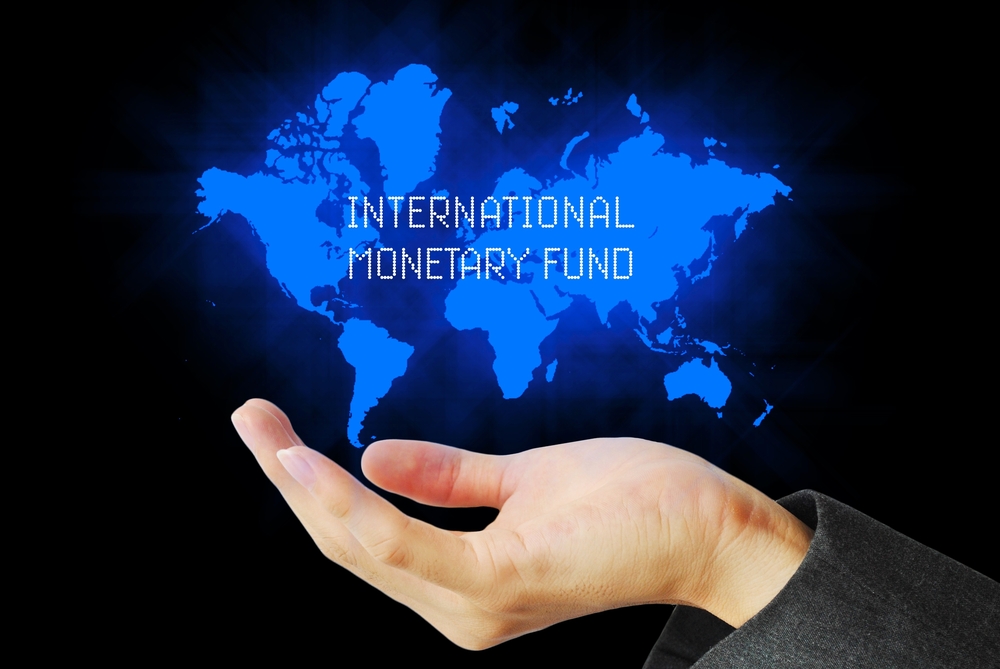Is the IMF Overstretched?

Please note that we are not authorised to provide any investment advice. The content on this page is for information purposes only.
The Annual Meetings of the World Bank Group and International Monetary Fund (IMF) in Lima, Peru have now concluded. This year’s meetings saw debates on the normalisation of US monetary policy, China’s new growth model, emerging market vulnerabilities and the post-2015 development agenda. There is still no obvious solution to a major thorn in the IMF’s side — the failure to implement long-awaited quota and governance reforms, which would give a greater voice to developing nations.
The Annual Meetings of the World Bank Group and International Monetary Fund (IMF) in Lima, Peru have now concluded. This year’s meetings saw debates on the normalisation of US monetary policy, China’s new growth model, emerging market vulnerabilities and the post-2015 development agenda. There is still no obvious solution to a major thorn in the IMF’s side — the failure to implement long-awaited quota and governance reforms, which would give a greater voice to developing nations.
Members of the IMF are assigned quotas based broadly on their relative positions in the world economy. A member country’s quota determines its maximum financial commitment to the IMF, its access to financing and, crucially, its voting power.
On 15 December 2010, the IMF’s Board of Governors approved a package of far-reaching reforms that would see, among other things, a major realignment of quota shares among members — shifting quotas more towards dynamic emerging markets and developing countries, and away from countries (predominantly in Europe) that are currently over-represented. These reforms were seen as necessary to maintain the IMF’s legitimacy, given the under-representation of developing countries in voice and vote relative to their growing global clout.
For the proposed realignment to enter into force, acceptance by three-fifths of the IMF’s members having 85 percent of total voting power is required. The United States (US), the only country to possess effective veto power, is yet to ratify the measure. Under US law, the administration cannot approve reforms of this nature without specific congressional authorisation, which Congress has repeatedly failed to provide.
There remains broad international consensus in favour of IMF quota and governance reform. In 2014 the Bretton Woods Committee, a nonpartisan coalition of former economic and national security policymakers, wrote to Congress urging it to enact IMF quota reform legislation. The Addis Ababa Action Agenda, adopted by the United Nations General Assembly in July 2015, called implementation of the 2010 reform package ‘the highest priority’.
In September, US Treasury Under Secretary Nathan Sheets remarked that the extended delay by Congress had led US partners to question its commitment to the multilateral system. And at a press briefing at the Annual Meetings, IMF Managing Director Christine Lagarde described the reform package as ‘absolutely the prime objective’, but noted that if the delay lasted any longer the IMF would look at ‘alternative solutions’.
Under IMF rules, the next General Review of Quotas must be completed by 15 December 2015. So what are the next steps?
Several ideas have been proposed. One is to decouple the components of the 2010 reform package, which actually consists of two interlinked parts: a realignment of quota shares, and a shift towards a more representative, all-elected Executive Board. Only the move to an all-elected Executive Board actually requires an amendment to the IMF’s Articles of Agreement, and thus congressional approval. Stand-alone quota reform could proceed with a smaller supermajority of 70 percent of total voting power, circumventing the need for US ratification. This approach is the preferred option for the Intergovernmental Group of Twenty-Four, which coordinates the positions of developing countries on international monetary affairs.
Other, more radical ideas have been floated. IMF quota financing is supplemented by various multilateral and bilateral borrowing arrangements. The IMF could make permanent a series of temporary bilateral credit lines created in 2012, placing decision-making in the hands of funding countries and not the US. Alternatively, certain country quota subscriptions could be increased in a manner that dilutes the voting power of the US.
Developing nations could also challenge the status quo by rallying around a candidate to lead the IMF when the current Managing Director’s five-year term expires in July 2016 — something they failed to do in 2011.
In the eyes of many in the developing world, the IMF continues to be seen as an extension of American geopolitical power. Long-standing dissatisfaction with the Bretton Woods institutions has been a factor in driving the five ‘BRICS’ nations — Brazil, Russia, India, China and South Africa — towards the establishment of their own New Development Bank. China has launched other development finance initiatives too, such as the Asian Infrastructure Investment Bank.
The emergence of various regional financial arrangements — including the Chiang Mai Initiative Multilateralization and European Stability Mechanism — and central bank swap agreements may help to supplement the work of the IMF, but they could also spark a fragmentation of the global financial safety net, creating challenges for the coordination of crisis responses in the future.
Meanwhile, clouds are gathering on the economic horizon. Concerns are growing that the IMF may be overstretched, leaving it unable to effectively respond if emerging markets begin to crumble. In addition to realigning quota shares, the 2010 reform package also called for an unprecedented doubling of total quotas, giving the IMF more base firepower to fight future crises.
Ultimately, failure to implement comprehensive reform has undermined the IMF’s legitimacy in the developing world. However, even if the 2010 reform package is eventually enacted, the transition to a more fragmented and contested global economic order now seems irreversible.
The unfinished business of IMF quota reform is republished with permission from East Asia Forum




